 |
| It's George! |
On this beautiful spring-like Friday we bring
you Spider Monkey facts! George is a very
vocal black spider monkey who loves to tell you all about his day. After the cleaning is done, I look forward to
one-on-one time with George, playing, grooming and “talking” with him. He is particularly taken by blondes and will
show is masculine side preening for the girls.
He is an elderly gentleman in his 40’s, although you would never know it
by the way he swings around inside and outside! His favourite treats are dates,
and peanut butter and banana sandwiches.
Mr. Jenkins is a black-handed spider monkey
who loves to play. His area is full of swings, tents, blankets, food puzzles
and toys. He LOVES celery chewing it,
spreading the juice all over his chest while making happy sounds! If Chili the llama comes too close for his
liking while he is outdoors, Jenks will break into loud barking to protest.
 |
| Jenkins playing with a treat box |
· Spider monkeys are of the genus Ateles which
contains seven species, such as Red-faced, White-fronted, and Colombian. Sadly, Black-headed and Brown spider monkeys
are listed as Endangered (EN) on the IUCN Red List.
· Spider monkeys are “New World” monkeys found
in Central America in the countries of Mexico, Belize, Costa Rica, El Salvador,
Guatemala, Honduras, Nicaragua and Panama.
· Spider monkeys live in the canopy (arboreal),
are active during the day (diurnal) and have a long prehensile (gripping) tail,
sometimes called the fifth limb.
· Spider monkey communities are “fission-fusion”,
meaning that they split up into smaller subgroups to forage and sleep and then
come together again.
·
Their diet includes fruit, leaves,
flowers, nuts, seeds, insects, arachnids and eggs.
· In the spider monkey world, the females
choose their mates and will have a single baby every two to five years. The babies
depend completely on their mothers for about ten weeks. After that, the young ones will integrate into
the troop, moving on their mother’s back for a year, and being dependent on
their moms for three years.
·
A highly vocal primate, their vocabulary
consists of barks, screeches, whinnying and howling. You can always hear George and his neighbour
Mr. Jenkins!
· Spider monkeys are considered the most
intelligent of the New World monkeys due to their brain size. Jenkins and George are very clever and
curious.
·
You can become a Foster Friend to George and
Jenkins by visiting our website!
 |
| Jenkins and Pockets chatting outside |


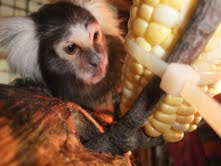
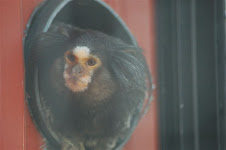
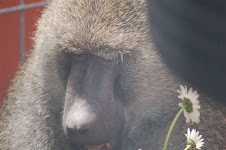
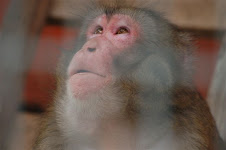
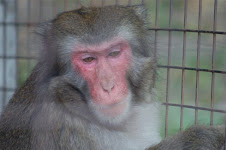
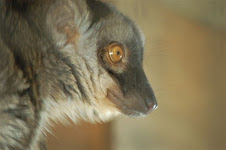

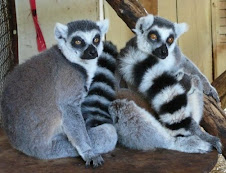

No comments:
Post a Comment